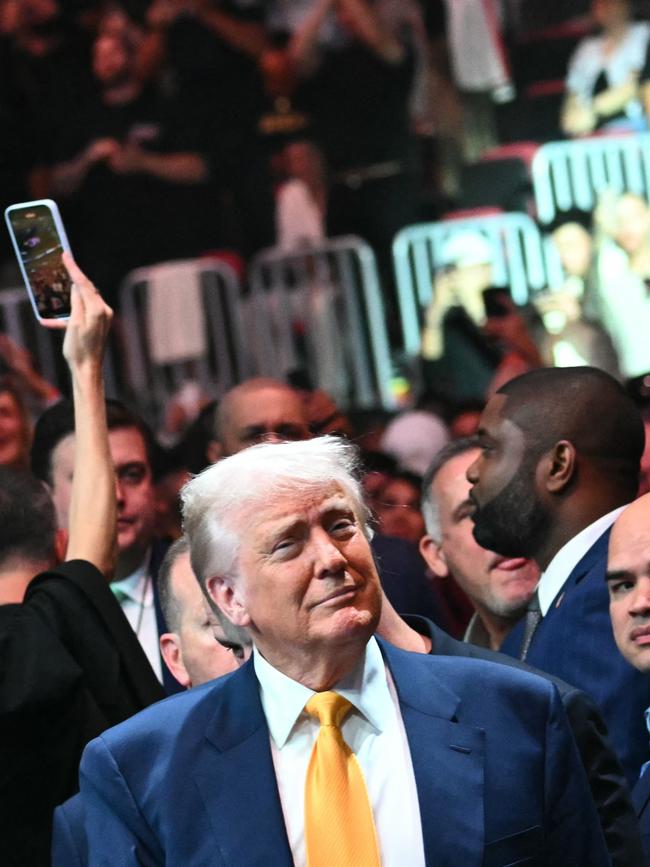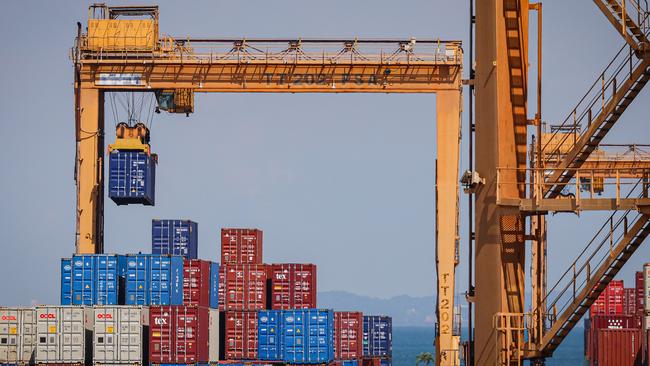US recession: How bad would it be?

We are already seeing all the main hallmarks that signal a recession is imminent: plunging confidence, investment plans of large corporates being shelved, and unanticipated tighter financial conditions (a function of falling equity markets and widening credit spreads).
Will the US have a recession? This is really just a function of whether the tariff settings are permanent or whether they are quickly wound back after a series of bilateral deals.
Permanent tariffs with retaliation will not only probably generate a US recession but leave financial markets concerned about a debilitating bout of stagflation. A series of trade deals will probably be better met by markets.
However, there are limits here. President Trump needs the tariff revenue, desperately. Simply put: No tariff revenue, no tax cuts — including the rollover of the existing tax cuts from Trump’s first term.
Trump has been talking about the need for tariffs since the 1980s, but in all that time he still doesn’t seem to understand what a tariff is, who pays it and what it can realistically achieve in terms of reorganising the world economic order. There is no economic theory that suggests fair trade utopia is achieved when all trade deficits to the US are eliminated.
The aim clearly is just to raise revenue and to contain China and its manufacturing proxies in the region.

Trump’s team clearly believe that they can return the US to manufacturing dominance. The trouble is that the US wasn’t a manufacturing powerhouse 30 years ago and it won’t be any time in the next 30 years.
Manufacturing as a share of US GDP was 16 per cent 30 years ago and is 10 per cent now. It has been dwarfed by the faster relative growth in the finance, technology, business services and real estate sectors of the economy.
The only way Trump’s policies will see large-scale reshoring is on the assumptions of no retaliation to permanent tariffs and fixed exchange rates. Hoping that China will cede its manufacturing dominance and not retaliate, however, is frankly pretty silly.
China exports to lots of different countries. The US is a large but declining share. Even if China does eventually agree to a higher tariff, it will merely allow its currency to depreciate and offset the impact. The net gain for the US will likely be zero or less, especially once reputational and geopolitical risks are included.
The real question is just how much damage is Trump willing to do in the interim.
Financial markets are focused on whether the equity market has adjusted enough to factor in the heightened risk of near-term US recession and the chances of de-escalation in coming days.
Since the 1950s the average bear market decline of the S&P 500 in a US recession has been 38 per cent. On this measure markets are unlikely to have fully priced a recession. Indeed, we may only be halfway there if a recession is your base case.

Equally we acknowledge that de-escalation can also occur quickly if a series of Trump-style “deals” are done. We may soon pass through peak volatility and peak panic, but dealing with the real-world consequences of the tariff announcements will continue to constrain markets.
The additional question is, what else has been broken in Trump’s vanity project of resetting the global trade system? If tariffs remain permanent, or continue to escalate, then the chance of something important in the global financial architecture failing increases exponentially, transporting a policy shock that may well be sufficient to generate a cyclical economic recession into the more concerning debt deflation cycle.
It’s always difficult to predict where the breakage could occur ahead of time. Trade finance withdrawal (likely), a handful of hedge funds in distress (pretty much a given), an over-leveraged bank of size in Asia, Middle East or Europe failing (let’s hope not).
Locally, Australia’s fragile economic recovery has left us just one global shock away from recession. However, it is worth remembering three things.
First, Australia’s exchange rate is playing its traditional shock-absorber role which has been crucial in navigating prior shocks. Second, the Reserve Bank will react, and we now expect it to cut interest rates a further 100 basis points in 2025. Perhaps more will be required. And third, Australia benefits from having a relatively defensive equity market and a well capitalised banking system.
For now, we expect the US will enter a recession in coming months and for Australia to skate through by the skin of its teeth with weak growth. But obviously the confidence intervals are wide at this time.
We are also mindful that virtually every recession bear market has a dead cat bounce. Currently, we think the Australian equity market is still around 10 per cent overvalued, but with markets moving wildly that gap can close rapidly.
Given Trump’s stubborn nature, Xi’s lack of incentive to make a deal and the Federal Reserve’s laser-like focus on rising inflation expectations, it’s likely to take a while before someone blinks. Like everyone else we are watching for signs of an overshoot in financial markets, but for now we are keeping our powder dry.
Tim Toohey is head of macro and strategy at Yarra Capital Management





Could the US have a recession in 2025? Absolutely.